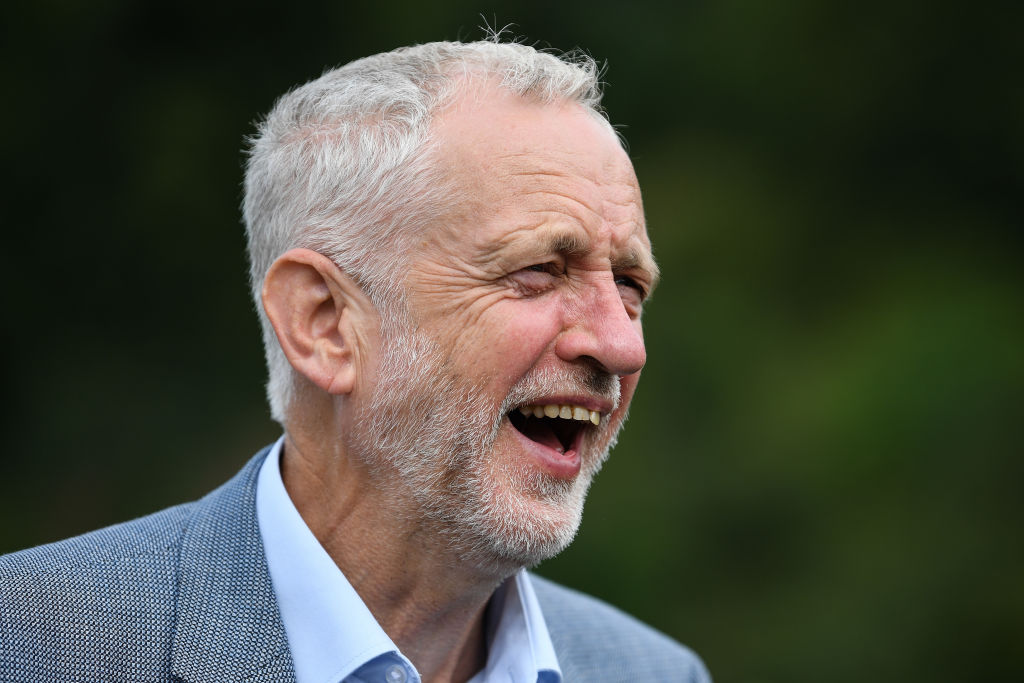You have to hand it to Labour – they certainly know how to make an entrance. In the week that parliament returns, it was announced on Monday that the full slate of Corbynista candidates had been elected to Labour’s National Executive Committee (NEC). This included Pete “Trump fanatics” Willsman, who was given a hero’s welcome by activists as he arrived at Labour HQ the following day. This was caught on camera with one activist bellowing through a microphone: “Jews are not oppressed…Jews are not discriminated against. They don’t suffer economic discrimination.”
Apart from sending chills down the spines of British Jewry, the main outcome of this NEC election is likely to be introduction of the much-threatened mandatory reselection for MPs. With Marxist entryists in full control of the NEC and many Constituency Labour Parties, they can now devote their efforts to destroying that last holdout of the moderates: the Parliamentary Labour Party.
Labour MPs have been in a curious position in these last three years. They do not like Corbyn, but they cannot get rid of him either. The mass resignation of the shadow cabinet had no effect; neither did the 172-40 vote of no confidence. This is because Corbyn was elected by a far-left membership which rushed to join the party after Ed Miliband’s foolish decision to reduce subs to just £3. Instead they have been forced to watch as their institutions have been increasingly overrun by thuggish outsiders. No doubt at each stage Labour moderates held out hope that they could eventually recover their beloved party. But they must now face reality. The nooses are already around their necks; if they don’t act now, they’re finished.
Talk of a new ‘centrist’ party has been brewing for some time. But the numerous attempts to make it a reality have been almost as pathetic as the pitiful Tory answers to Momentum. Even the £50 million effort by LoveFilm founder Simon Franks split into the Judean People’s Front and the People’s Front of Judea before it was even launched. This is because serious political parties are founded by serious politicians, not Twitter celebrities and businessmen with saviour complexes. But recent history suggests they must also be founded by politicians in Parliament.
MPs may understandably be put off by the experience of the Social Democratic Party in the 1980s. Founded in 1981 by a ‘Gang of Four’ disgruntled moderates (only two of whom were MPs) who felt Labour was moving too far left under the leadership of Michael Foot, the party managed only 28 defections from Labour MPs (out of a 1979 cohort of 269) before the 1983 general election. The SDP-Liberal Alliance hoovered up an impressive 25 per cent of the popular vote in that election but, alas, most of the 28 defectors lost their seats and the Alliance managed only 23 between them. First past the post is a harsh mistress. After a net loss of one seat in the 1987 election, both parties voted to merge in 1988 to form the Liberal Democrats. They now have 12 seats.
But this is not 1981 and there are good reasons why a new party did not work then but could work now. Chief among these is the fact that Labour moderates have never been in a more desperate situation. Michael Foot may have been a left-winger, but his was a radicalism that was firmly rooted in the traditions of the Labour Party, unlike Corbyn’s crypto-communism. Furthermore, moderates had not completely lost control of the party machinery, and could realistically hold out hope for regaining the upper hand, which they did under his successor Neil Kinnock. The threat, therefore, was simply not great enough.
The same cannot be said today. With all the major battles lost and mandatory reselection looming, moderate Labour MPs have nothing left to lose. If they have any sense, they will follow Frank Field’s example and resign the whip, thus reducing the Parliamentary Labour Party to a rump of about 50 Corbyn loyalists, and form their own caucus which would effectively become Her Majesty’s Most Loyal Opposition. They may even pick up some Liberal Democrats and the odd Tory along the way. This would, obviously, be a political earthquake and a huge news story — the perfect recruiting tool for a new party — with the best part of four years remaining before the next election to build it into a genuine popular movement.
I don’t doubt that abandoning a 118-year-old party would be an extremely difficult and emotional decision for MPs who will have called it home for decades. But 35 of them are already responsible for this mess by nominating Corbyn in the first place (Frank Field among them). If they don’t want to be responsible for making him prime minister, and taking the rest of the country with them into oblivion, then they had bloody well better get on with it.






Comments